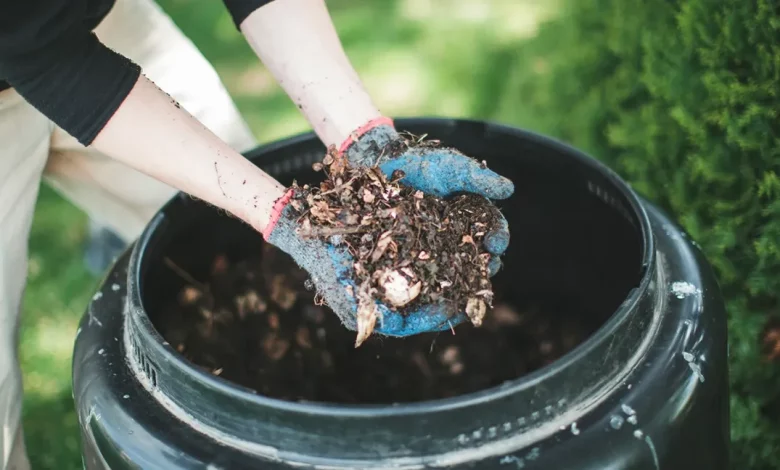The Ultimate Handbook on How to Compost for a Greener Tomorrow

In a world increasingly aware of the environmental impact of our choices, the path to a greener tomorrow lies right in our own backyard – or more specifically, in our compost bins. Sustainable living begins with understanding the profound impact of composting on our environment. This ultimate handbook is your guide to unveiling the secrets of composting, empowering you to make a tangible difference in creating a more sustainable and eco-friendly future.
The Essence of Sustainable Living
What is Sustainable Living?
At its core, sustainable living is a lifestyle that seeks to reduce one’s ecological footprint. It involves making conscious choices to minimize environmental impact, conserve natural resources, and promote long-term ecological balance. Composting stands out as a simple yet powerful practice within the realm of sustainable living, offering a direct and positive impact on the environment.
The Urgency of Sustainable Practices
As climate change looms and natural resources deplete, the urgency of adopting sustainable practices becomes increasingly evident. Composting provides a practical and accessible solution for individuals to contribute to a healthier planet by diverting waste from landfills and enriching the soil without reliance on harmful synthetic fertilizers.
Composting as the Cornerstone of Sustainability
Closing the Loop on Organic Waste
Composting is a cyclical process that transforms organic waste into a valuable resource. Rather than discarding kitchen scraps, yard waste, and other organic matter into landfills, composting redirects these materials back to the soil. This closed-loop system reduces the need for external inputs, completing a natural cycle that benefits both the environment and the individual.
Reducing Methane Emissions
Landfills are notorious for producing methane, a potent greenhouse gas. By diverting organic waste from landfills through composting, we directly contribute to reducing methane emissions, mitigating climate change impacts and fostering a cleaner atmosphere.
Promoting Soil Health and Biodiversity
Compost acts as a powerhouse for soil health. Its rich nutrients enhance soil structure, fertility, and water retention, fostering optimal conditions for plant growth. Healthy soil, in turn, supports diverse ecosystems, promoting biodiversity and the overall resilience of our environment.
Guide to Composting for Beginners
Choose Your Composting System
Whether you opt for a backyard compost pile, a tumbler, or an indoor worm bin, selecting the right system is crucial. Consider your living space, available time, and the amount of waste you generate to choose a system that aligns with your lifestyle.
Understand the Composting Ingredients
To compost like a pro, you need to master the art of ingredient balancing. Greens, such as fruit and vegetable scraps, provide nitrogen, while browns, like dry leaves and cardboard, contribute carbon. Achieving the right balance ensures an optimal environment for decomposition.
Build and Maintain Your Compost Pile
Layering is key when building a compost pile. Alternate greens and browns to encourage airflow and prevent the formation of a slimy mess. Regular turning ensures even decomposition and helps maintain a healthy composting environment.
Monitor and Adjust
Composting is a dynamic process. Regularly check the moisture levels, adjust the carbon-to-nitrogen ratio as needed, and observe your compost for any signs of imbalance. The ability to adapt your composting practices ensures long-term success.
Harvesting Your Compost Gold
Patience is rewarded in composting. Once your compost reaches a dark, crumbly consistency and has a rich, earthy smell, it’s time to harvest. Use this nutrient-rich compost to feed your garden, completing the cycle of sustainable living.
Troubleshooting and Fine-Tuning Your Composting Journey
Addressing Odor Concerns
Foul odors are often a sign of an imbalanced compost pile. Increase aeration by turning the pile, add more browns to counteract excess nitrogen, and ensure proper moisture levels to eliminate unpleasant smells.
Managing Pests
A well-maintained compost pile should not attract pests. Avoid adding meat, dairy, or oily foods, and ensure proper layering to discourage unwanted visitors. If issues persist, consider a compost bin with a lid.
Optimizing Decomposition Speed
If your compost is taking longer to decompose, evaluate the balance of greens and browns, turn the pile more frequently, and monitor moisture levels. Adjustments in these areas can accelerate the composting process.
Advanced Composting Techniques for the Enthusiast
Vermicomposting
For those in urban environments or with limited outdoor space, vermicomposting introduces worms into the mix. Worms break down organic matter, producing nutrient-rich castings that serve as an exceptional fertilizer.
Compost Tea Brewing
Take your composting to the next level by brewing compost tea. This liquid fertilizer is made by steeping compost in water, creating a nutrient-packed elixir that can be applied directly to plants, enhancing their growth and resilience.
Hot Composting
Hot composting involves maintaining higher temperatures in the compost pile, expediting the decomposition process. With careful layering and monitoring, hot composting allows for quicker turnaround times and a more efficient composting experience.
Embracing Sustainable Living Through Composting
Mindful Consumption
Composting is not just about waste disposal; it’s about reevaluating our relationship with consumption. Being mindful of what we purchase and consume is a key component of sustainable living. Consider supporting local, sustainable products and reducing single-use items to minimize your environmental impact.
Educating and Inspiring Others
As you embark on your composting journey, share your knowledge and experiences with others. Educate friends, family, and community members about the benefits of composting, inspiring them to adopt sustainable practices and contribute to a greener future.
Celebrating Small Victories
In the realm of sustainable living, every action counts. Celebrate the small victories – from successfully composting your kitchen scraps to witnessing the positive impact on your garden. Recognize that these seemingly small steps collectively contribute to a more sustainable and resilient planet.
Conclusion: Composting as a Catalyst for Change
Composting is not merely a gardening technique; it’s a transformative practice that has far-reaching implications for our environment and our collective future. As you embark on this journey, remember that your compost pile is more than a heap of organic matter – it’s a symbol of your commitment to sustainable living.
By composting like a pro, you are actively participating in the regeneration of our planet, one kitchen scrap at a time. Embrace the challenges, celebrate the successes, and revel in the knowledge that you are making a tangible difference in creating a greener tomorrow. Together, as stewards of the Earth, we can unveil the secrets of sustainable living and pave the way for a more harmonious and environmentally conscious future. Happy composting!




